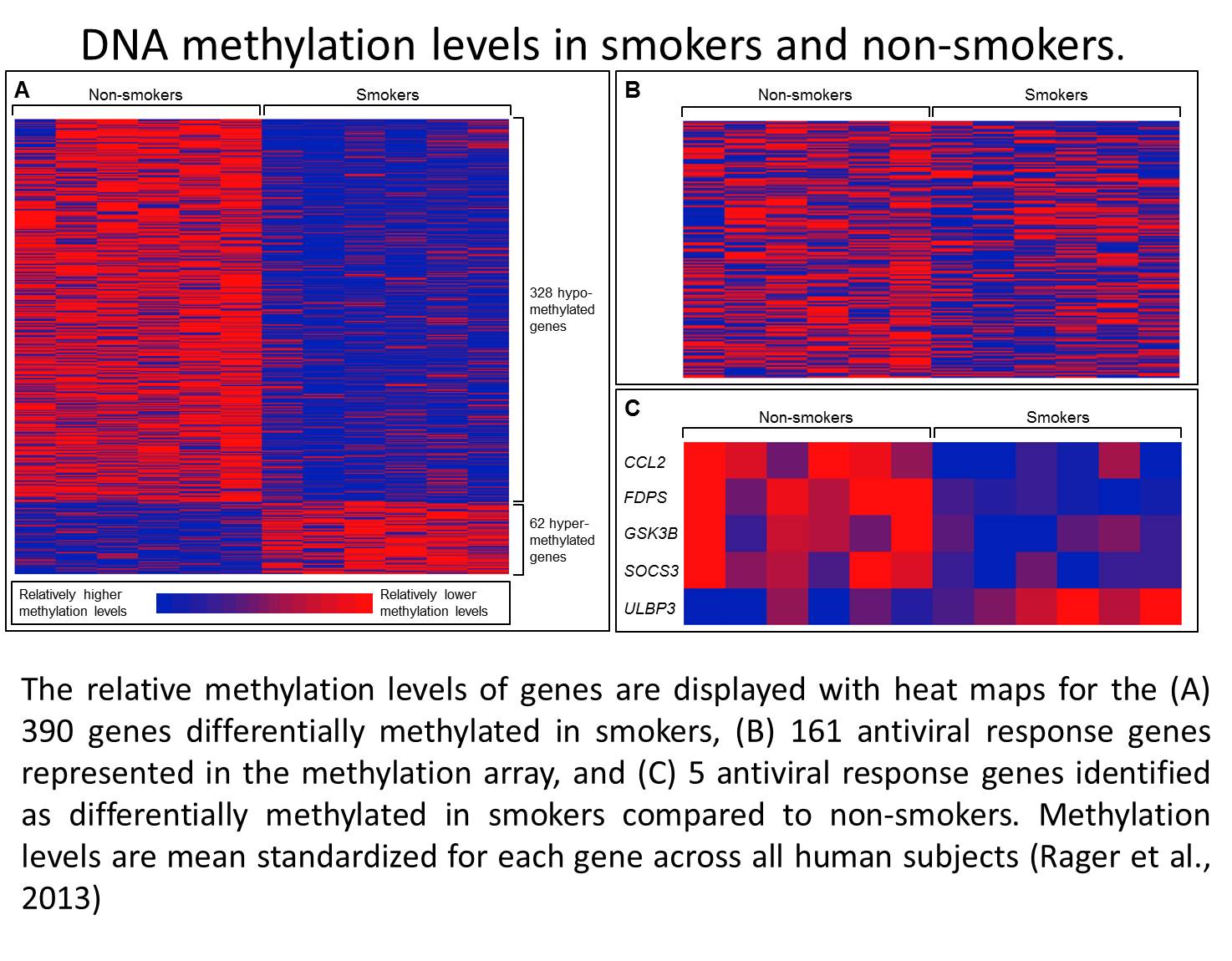Project IV: Translational Studies to Identify Epithelial Biomarkers of Smoke Exposure
It is known that respiratory immune responses are impaired in cigarette smokers and that the incidence and severity of respiratory virus infections are greater in these individuals. Since the respiratory epithelium is the primary target of most respiratory viruses in humans, smoke-induced changes in epithelial function are likely to have a significant impact on respiratory host defense and be important in determining the final outcome of infection. In otherwise healthy young human volunteers, we have previously shown that cigarette smoke significantly affects epithelial-derived antiviral defense responses; however, whether new and emerging tobacco products (NETPs) have a similar effect on epithelial host defense responses is completely unknown. This Project will test the hypothesis that exposure to NETPs (e.g., little cigars and hookah) alters epithelial genomic and epigenomic signatures and that these biomarkers are associated with changes in antiviral and inflammatory responses to viral infection.
are impaired in cigarette smokers and that the incidence and severity of respiratory virus infections are greater in these individuals. Since the respiratory epithelium is the primary target of most respiratory viruses in humans, smoke-induced changes in epithelial function are likely to have a significant impact on respiratory host defense and be important in determining the final outcome of infection. In otherwise healthy young human volunteers, we have previously shown that cigarette smoke significantly affects epithelial-derived antiviral defense responses; however, whether new and emerging tobacco products (NETPs) have a similar effect on epithelial host defense responses is completely unknown. This Project will test the hypothesis that exposure to NETPs (e.g., little cigars and hookah) alters epithelial genomic and epigenomic signatures and that these biomarkers are associated with changes in antiviral and inflammatory responses to viral infection.
For these studies, we will compare samples obtained from non-smokers (NS), cigarette smokers (CS), hookah smokers (HS), and little cigar smokers (LCS) (n = 20 subjects/group). CS, HS, and LCS-exposed populations will be stratified based on their responses to the protocol questionnaire and will be healthy adults aged 18-45 years with no underlying medical problems. Using these subjects, we will first obtain superficial nasal scrape biopsies to compare genomic and epigenomic signatures induced by smoking tobacco. Our initial focus will be to compare genome-wide gene expression and DNA methylation profiles using well-differentiated human nasal epithelial cells (NECs). Next we will use an in vitro model of differentiated human NECs to compare host defense responses after exposure to smoke from cigarettes, little cigars and hookahs. Using this approach, we should be able to identify biomarkers in epithelial cells that are associated with tobacco exposure related to changes in host defense responses. The final aim of this project will be to use live attenuated influenza virus (LAIV) inoculation of human volunteers to compare influenza-induced responses. Similar to our already published studies, we will compare LAIV-induced nasal viral titers, antiviral defense responses, inflammatory mediator production and markers of immune responses of non-smoking volunteers to those of cigarette, hookah and little cigar smokers.